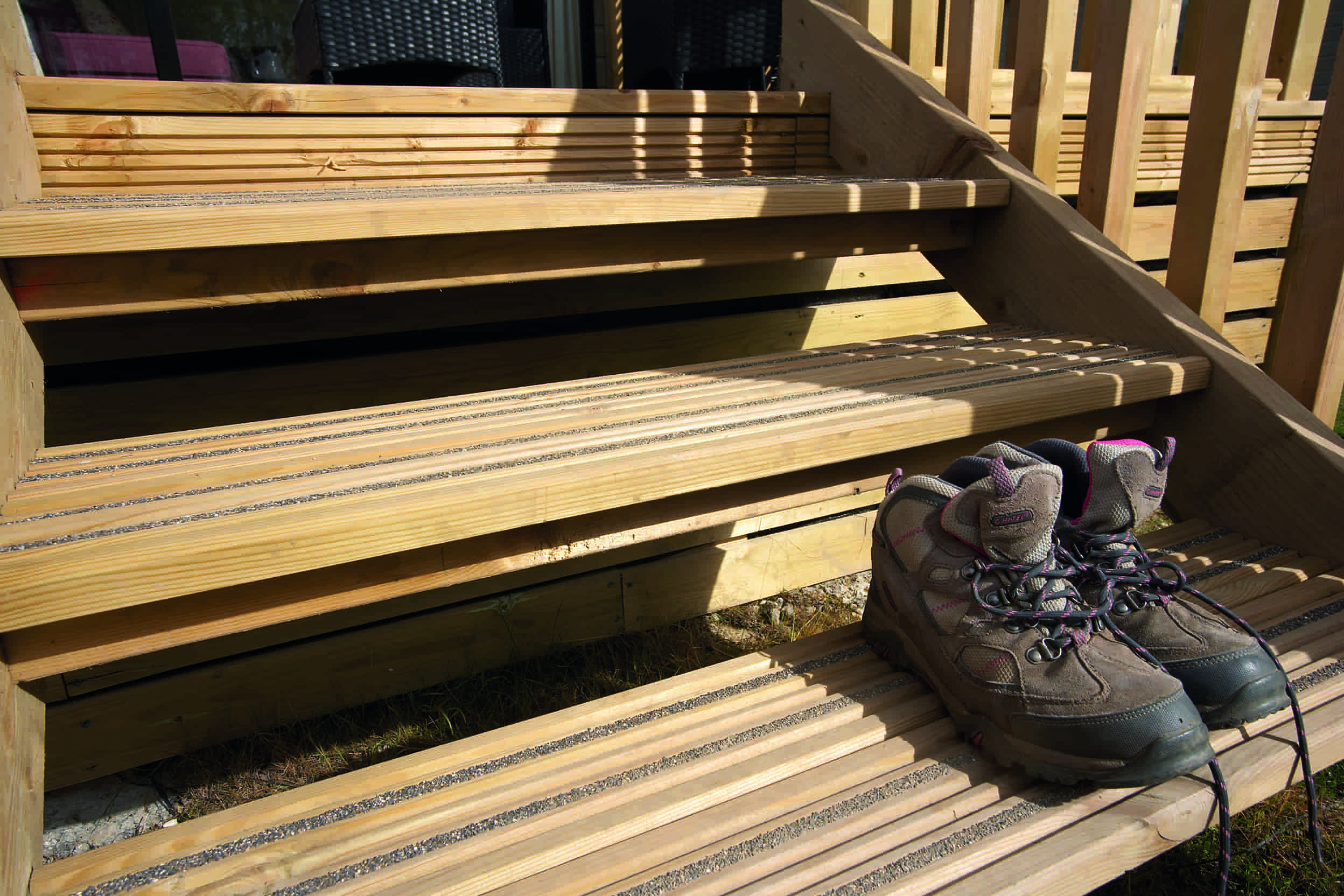Why You Should Choose Timber Anti-Slip Decking
Making an informed decision regarding the suitability of decking for your holiday home. It is commonplace for holiday and park homeowners to add a deck to their unit to increase the usable space and make an all-weather surface to enjoy the outdoors as much as possible.When considering their options, the prevailing factor for the choice of product is frequently a low maintenance solution such that the owner can spend more time enjoying their investment. Many of these units are used by the elderly and/or young families, both of these demographics have the potential for injury due to slips and falls on unsuitable surfaces. Typically, little consideration is given to the anti-slip properties of the deck once it becomes wet, and anyone who has holidayed in the UK will know only too well that this is a regular occurrence. This usually means that a plastic decking solution is chosen due to its perceived zero maintenance requirement. There is a misconception that plastic decking provides the best anti-slip solution. This just isn’t true as plastic decks anti-slip performance when wet is significantly lower than a wooded deck with an anti-slip solution applied to it. Consumers should also be aware that some plastic decking solutions are built on a timber substructure and whilst the seen “maintenance free” parts of the deck have no visible changes over time, the timber substructure if not appropriately treated may be rotting away to its hearts content. Any timber used in the construction of the supporting decking that is in permanent ground contact should be treated to use class 4 to ensure it has sufficient protection against rotting. However, to use the description “non-slip decking”, the product must achieve a Pendulum Test Value (PTV) in excess of 35. Any score above this is considered ‘low-slip’ potential. Timber Boards fitted with abrasive anti-slip strips typically achieve a score in excess of 70 even when wet. Many Plastic decking manufactures claim their products are anti-slip, and in dry conditions they do have very good anti-slip properties. They will achieve the PTV value when dry but very few achieve it when wet. A pressure treated hardwood deck board fitted with anti-slip strips is by far the best alternative for safety, limited maintenance (annual jet washing) and price. Finally, from an ecological perspective, timber is a sustainable material that captures carbon dioxide, Plastic decking even composites (wood plastic mixes) have a high oil content and require considerably more energy in their production.

